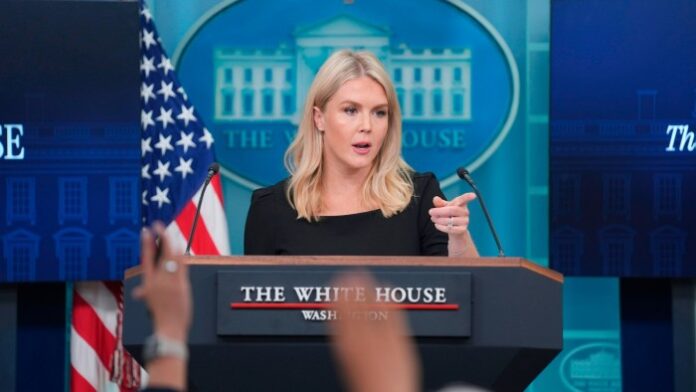Unlock the White House Watch newsletter for free
Your guide to what Trump’s second term means for Washington, business and the world
Donald Trump has said there could be new talks with Iran in the “near future” and that he would decide whether to join Israel’s attack on the country “within the next two weeks”.
The statement by the US president on Thursday appeared to signal that he was slowing down his decision about entering the war, even as American military assets speed to the region amid fears of an imminent escalation.
“Based on the fact that there’s a substantial chance of negotiations that may or may not take place with Iran in the near future, I will make my decision whether or not to go within the next two weeks,” the president said in a statement read by White House press secretary Karoline Leavitt on Thursday.
Leavitt also confirmed that the US had kept open its negotiations with Tehran during days of missile exchanges between Iran and Israel.
“Correspondence has continued,” Leavitt said in response to a question about whether Trump’s envoy Steve Witkoff had been in contact with Iranian officials.
The comments from the US came after seven days of conflict, which began when Israel launched an attack on Iran in what it said was a bid to destroy the Islamic republic’s nuclear programme.
The US has assisted Israel in shooting down Iranian missiles fired at its ally and the Pentagon is rushing more military assets to the region, with speculation mounting that Trump was preparing to authorise bombing raids to hit Iran’s Fordow nuclear facility.
On Wednesday, Trump said he was considering strikes within days. “The next week is going to be very big — maybe less than a week,” he said.
The possibility of more US-Iran negotiations comes as Britain, France and Germany prepared to hold talks with Iran’s foreign minister on Friday in Geneva, as part of the last-ditch push effort to prevent escalation of the conflict.
“It’s better dealt with by way of negotiations than by way of conflict . . . The risk of escalation across the region is obvious,” UK Prime Minister Sir Keir Starmer said on Thursday. He added that the UK “completely” recognised Israel’s right to self-defence, “but the principle is that we need to de-escalate this”.
European capitals have stepped up contingency plans for the US entering the conflict since Trump acknowledged on Wednesday he “may” enter the war.
The UK government confirmed that David Lammy, UK foreign secretary, would attend the meeting in Geneva, after holding talks with Marco Rubio, his US counterpart, in Washington on Thursday.
The gathering in Geneva with Iran’s Abbas Araghchi is a revival of the “E3” format, under which Britain, France and Germany — the European signatories to a 2015 nuclear accord Tehran signed with world powers — have sought to resolve the country’s stand-off with the west.
The aim of the meeting would be to agree a framework to restart monitoring of Iran’s nuclear programme, but with international monitors granted unfettered access to facilities. Another issue on the table will be whether Iran would be willing to make a commitment to cut its ballistic missile stockpile.
A crisis over Iran’s nuclear programme erupted after Trump unilaterally withdrew from the accord in 2018. Tehran responded by expanding its activity and has been enriching uranium to levels close to weapons grade, although it says its nuclear programme is purely for civilian purposes.
The Trump administration held five rounds of indirect talks with Iran before the diplomatic process was upended by Israel launching its strikes on Friday — days before a sixth round of negotiations was scheduled.
Israeli Prime Minister Benjamin Netanyahu, who opposes the diplomatic efforts, said he launched the war to prevent Tehran developing nuclear weapons.

Iran’s foreign ministry confirmed that Araghchi will meet his British, French and German counterparts, the first high-level face-to-face diplomacy with Tehran since Israel launched its attacks on Iran.
French foreign minister Jean-Noël Barrot told journalists on Thursday: “We have expressed our willingness to take part in negotiations aimed at securing from Iran a lasting rollback of its nuclear programme and its ballistic missile programme.”
He said: “Negotiation remains today the only way to achieve a lasting rollback of Iran’s nuclear and ballistic missile programme.”
The E3, which was heavily involved in efforts with the Biden administration to revive the 2015 accord, had been largely marginalised by Trump as he sought to pressure Iran into a new deal.


